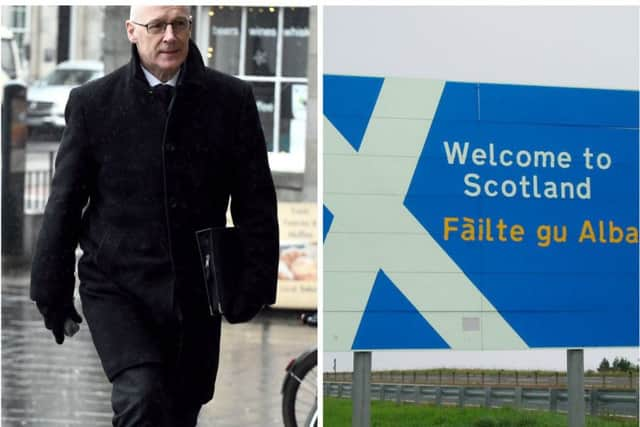Gaelic dictionary project handed extra £2.5m funding ten years after work began
More than a decade after they began, Scottish researchers working on the most comprehensive Gaelic dictionary ever compiled are being given a multi-million pound funding boost.
Education Secretary John Swinney will today announce that a further £2.5m is being put towards the project, on top of the £2m already given five years ago.
Advertisement
Hide AdAdvertisement
Hide AdThe dictionary, Faclair na Gàidhlig, has the ambitious aim of documenting the history, development and usage of every word in the language.


Researchers working on the project have already assembled a giant database of continuous Gaelic text made up of some 30 million words, using written sources and audio records.
This “corpus” will inform the compiling of the dictionary’s individual entries, which are eventually expected to number in the hundreds of thousands. However, work on this has yet to begin.


The researchers have also focused on creating detailed training materials for the next generation of lexicographers who will have to take their place on the project when they retire.
Professor Boyd Robertson, convenor of the project’s steering committee, said the finished article would be “more like an encyclopaedia” than a dictionary.
Rather than just simple entries and definitions, it will provide detailed explanations of the linguistic roots of each word and their various spellings at different times in Scottish history.
Researchers from the universities of Aberdeen, Edinburgh, Glasgow and Strathclyde are collaborating on the project alongside the National Centre for Gaelic Language and Culture.
It is intended that the dictionary will eventually be published online allowing people to use it for free, but it is expected to take at least 25 years to complete.
Advertisement
Hide AdAdvertisement
Hide Ad“I’m about to retire from my post here, so it’s unlikely that people of my vintage will be around to see the finished product,” said Professor Robertson. “But nevertheless, it’s important for our generation to lay the groundwork for others to build on.”
Lorna Pike, a lexicographer and the project’s co-ordinator, said each entry could take anywhere between “a few hours and a couple of months”.
Mr Swinney will announce the new funding for the project as he leads a debate at Holyrood on the National Gaelic Language Plan, which is intended to rekindle waning interest in the language.
According to the 2011 census, only around 1 per cent of the Scottish population are fluent Gaelic speakers, leading some to question whether the dictionary project is worthwhile.
But both Ms Pike and Professor Robertson defended the work, saying it would give Gaelic speakers an authoritative resource and help to preserve an important part of Scottish culture.
“It all comes down to respecting people and culture. This kind of dictionary will mean that the Gaelic culture and language will always be accessible,” Ms Pike said.
“It’s almost more important to do it if Gaelic does die out, because then we will know what kind of people the Gaels were and how they lived. Otherwise they will be lost in the mists of time.”
Professor Robertson added: “For the general populace, it will be a window on our history, heritage and culture. It’ll be something people can delve into as they would an encyclopaedia, and find out about the development of society over the years.”
